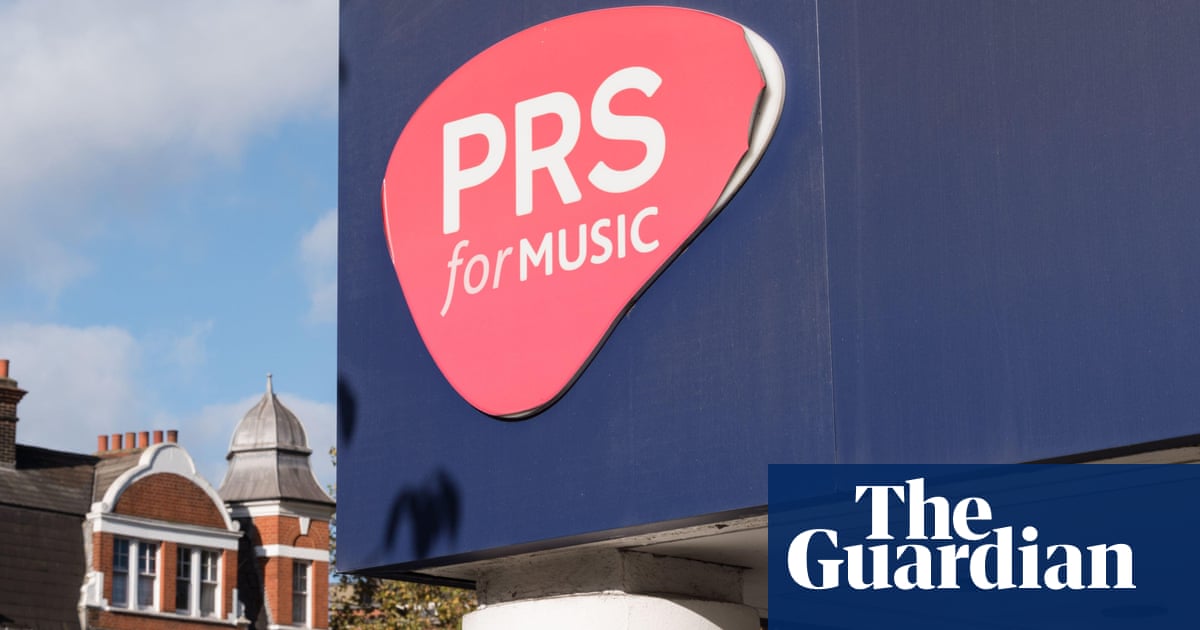A group of songwriters, including Jim and William Reid from the Jesus and Mary Chain and King Crimson’s Robert Fripp, are suing UK body PRS for Music over how it handles royalties from live performances, accusing it of levying high administration costs for smaller songwriters while giving preferential treatment to already successful stars.
PRS has a near monopoly in the UK, acting as an intermediary between companies that play music (such as radio stations and shops as well as live events) and those who write it: companies sign licences, and PRS distributes the proceeds to songwriters.
The lawsuit – which PRS says it will “vigorously defend” – centres on live music licensing, whereby songwriters receive a royalty cut from ticket sales, with PRS taking their own cut of those royalties as an administration fee.
The lawsuit alleges that PRS offers major songwriters “sweetheart” deals that end up being subsidised by smaller writers. Those writers, in turn, face prohibitive fees and administrative red tape if they want to withdraw their rights from PRS and instead directly license with promoters, venues and music festivals.
In a joint statement, the 10 claimants say: “The ball is now firmly in PRS’s court. Either they constructively engage with much-needed reforms to empower and benefit writers and publishers, or they continue to resist these necessary changes, and attempt to defend the indefensible by spending yet more of the members’ money on legal costs supporting policies that make the members less money.”
Fripp said: “I am yet to be persuaded that the PRS operates on behalf of the membership’s best interests.”
The suit is being led by Pace Rights Management, a company that offers direct licensing of live rights. Pace was founded by artist managers critical of the PRS system.
Asked if this legal action was an attempt to weaken PRS as a competitor, Pace co-founder Adam Elfin said: “As PRS are aware of the benefits to writers of direct licensing, we are forced to conclude that their policies relating to the withdrawal of live public performance rights are intended to try to obstruct writers from receiving those benefits, and to restrict businesses such as Pace that empower writers to direct license.”
PRS told the Guardian in a statement: “Given PRS for Music’s sincere efforts to engage constructively, it is disappointing that Pace has taken the step to issue proceedings against us. We will be vigorously defending the society against these claims.”
In the UK, songwriter royalties from live shows are typically based on 4.2% of gross ticket sales (up from 3% levied until 2018). PRS typically takes a 23% administration cut of those royalties before paying money through to the relevant songwriters.
For example, an artist playing an 80,000-capacity stadium with an average ticket price of £150 would generate £10m after VAT. PRS would collect £420,000 in songwriter royalties and its 23% cut of that would be £96,600.
But PRS has what it calls Major Live Concert Service (MLCS) to handle royalty administration for arena- and stadium-level acts, leading to deals for major songwriters with an “administrative charge” of only £125 from their royalties earned per gig.
Pace claims to have seen internal PRS documentation showing the major writers participating in the MLCS are offered an average administration fee of 0.2%, while the “99.9% of everyone else” are charged admin of 23% on the ordinary tariff. Therefore, Pace alleges, those writers who are not on the MLCS are being charged 115 times more than those who are. “The smaller PRS members are subsidising the larger members to get these preferential conditions,” claims Elfin.
The lawsuit also claims PRS is deliberately erecting financial and administrative obstacles to try to obstruct other writers from direct licensing. Pace and the writers in the suit first contacted PRS in December 2023 outlining their criticisms and argue the organisation has been deliberately prevaricating.
The Guardian put all the accusations outlined above to PRS. The organisation declined to put forward a senior executive for interview and instead issued a statement.
“Our policies and rules follow a thorough and extensive approval and review process by the Board and the Members’ Council, which is comprised of members and independent non-executive directors appointed by the membership,” it says. “The rules which govern the process for live rights withdrawals were approved by members at the PRS AGM.”
It adds: “PRS for Music has consistently sought constructive dialogue with Pace for many years, proposing and implementing solutions to the issues raised. We have worked extremely hard to simplify our processes in the interest of our members, which Pace has consistently failed to comply or engage with, which has resulted in royalties being unnecessarily withheld from PRS members for the live performance of their works at concerts. It has also created complexity and uncertainty for live music venues and promoters.”
In a separate move, Dave Rowntree of Blur began a class action suit against PRS in April, alleging it is in violation of UK and EU competition rules over how it distributes “black box” income (the term for money that cannot, for reasons including incomplete writer data or contact details, be paid through).
PRS asserted that Rowntree’s claims are “factually incorrect and fundamentally misrepresent our policies and operations”.
PRS’s handling of live-related royalties has been challenged in the past, too. In 1993, U2 complained the fees PRS were charging were excessive and it was too slow in administering royalty payments. Three years later the UK’s Monopolies and Mergers Commission found “a monopoly situation exists in favour of the PRS” alongside “a number of [other] adverse findings”. Subsequently, in 1997, PRS made changes to allow artists to administer their own performing rights.

